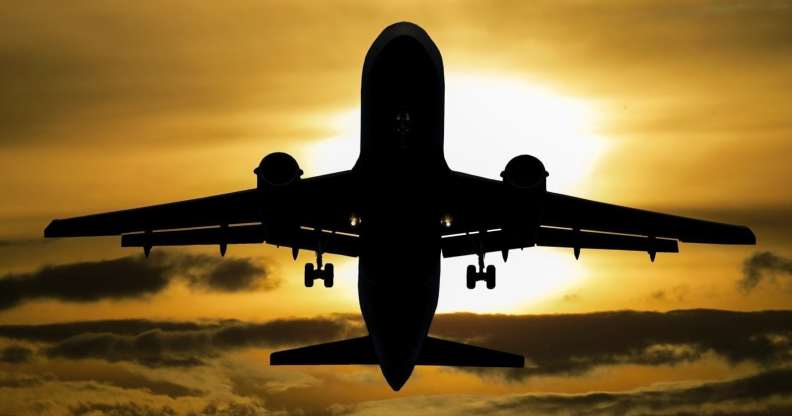British pilot ‘saves life of gay asylum seeker’

Jagat was outed in a national newspaper (Pexels)
A gay asylum seeker has said a pilot “saved his life” by refusing to fly him back to Nepal.
On Sunday (August 5), Jagat was meant to be deported back to his home country – where he was outed in a national newspaper – despite his mother having threatened that she would “cut you into pieces” if he came back.
PinkNews revealed in January that of the 1,436 people who attempted to claim asylum relating to sexual orientation between 1 October 2015 and 30 September 2016, just 289 applications were granted.

LGBT+ people still face discrimination in Nepal, despite progressive laws (PRAKASH MATHEMA/AFP/Getty)
Jagat, who has started a relationship with a man while studying in the UK, shouted and cried on the runway – and when the Jet Airways plane to Mumbai left, he was no longer on board, GSN has reported.
The asylum seeker credited the pilot with earning him a reprieve, though he said: “I got very bad bruises all over my hands. It might happen again… soon.
“I’m still shaking and really traumatised by what just happened. Never felt this depressed and suicidal.”

Jagat’s mother has threatened to kill him if he returns, despite increasing acceptance of queer people in her country (PRAKASH MATHEMA/AFP/Getty)
Discrimination protections for LGBT+ people have been enshrined in Nepal’s constitution since 2015, but homosexuality is still stigmatised in the country.
Jet Airways has declined to comment.
A spokesperson for the Home Office – whose officials have reportedly told Jagat they don’t believe he’s gay – told PinkNews: “The UK is a world leader in its approach to handling asylum claims on the basis of sexual orientation and gender identity and has worked with leading charities on our dedicated caseworker guidance.
“We only ever return people if both the Home Office and the courts are satisfied they do not need our protection and have no legal basis to remain in the UK.”
Data published by the UK government last year showed that thousands of gay, lesbian and bisexual asylum seekers have been refused asylum from countries where they could face prison, violence, or death.

“It might happen again… soon,” said Jagat (PRAKASH MATHEMA/AFP/Getty)
The astonishing data, which the Home Office described as “experimental”, showed that thousands of gay and lesbian asylum seekers had been turned away a two-year period.
A total of 3,535 asylum applications were made by people fleeing persecution at least partly based on their sexual orientation, amounting to six percent of asylum claims.
More than two-thirds of these were rejected.
Of cases with a clear resolution, 2,379 claims were rejected, and just 838 approved.
The data also showed that asylum claims were rejected from gay people who fled persecution under some of the most violent, homophobic regimes on the planet.

An Iranian demonstration against murders of gay people (JOHANNES EISELE/AFP/Getty)
A total of 84 people from Iran, where homosexuality is punishable by death, were denied asylum – nearly half of all of those who applied.
The Home Office accepted just 63 gay asylum seekers from Nigeria, where gay people can face extreme violence or decades in jail, while 268 gay Nigerians were turned away.
Of the applications from gay asylum seekers fleeing Uganda – where gay sex is punishable by seven years in prison – 108 were rejected.
Not a single applicant from India or Sri Lanka, where homosexuality is a crime, was accepted – despite 82 and 48 applications respectively.

